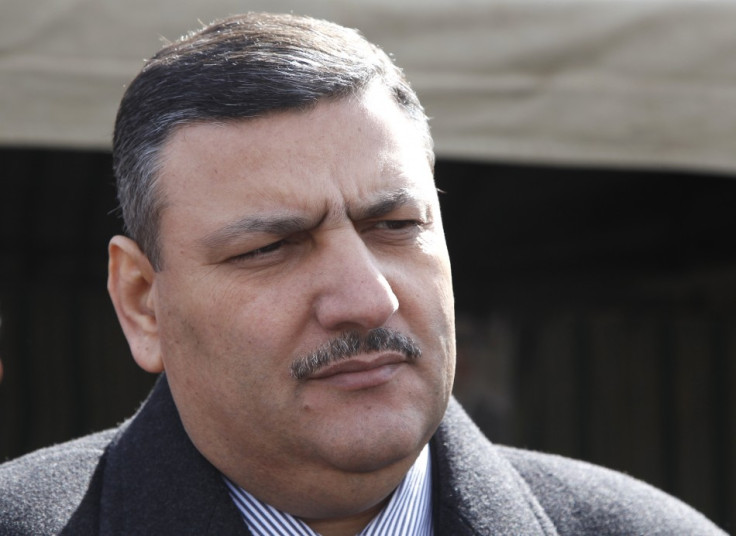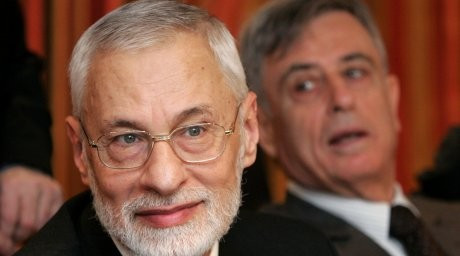Syrian Civil War: Will Ba'athists and Jihadis Poison the Rebel Cause?
Syria conflict becoming increasingly complex as various players vie for power positions in post-Assad Syria
Ordinary, unaffiliated protesters in the southern Syrian city of Dara'a were the first faces of the uprising against President Bashar al-Assad but over the 17 months of the spiralling conflict, groups such as the Syrian National Council (SNC) and the Free Syrian Army (FSA) have rapidly come to prominence.
The SNC is the largest umbrella group of Syrians opposed to the rule of Assad but internal rivalries has prevented it from forming a cohesive bloc. The fact that its leaders are in exile has not helped the SNC's popularity within Syria where it has been accused by defectors from the army of being out of touch with the reality of the conflict. Reports suggest that the SNC's main backer is Qatar.
As the crackdown on protesters gained pace, defectors from the regime's army formed the Free Syrian Army, a group regarded as one of the main on-the-ground players of the revolution, composed of semi-independent units. Several reports have suggested that the group is being funded by Saudi Arabia, Qatar and possibly Turkey.
The Local Coordination Committees have also become a familiar part of the anti-Assad struggle - at least in the international press. Local committees surfaced in several cities with the aim of meeting, planning and organising events on the ground. The Local Coordinating Committees of Syria was set up as an umbrella group to synchronise them.
Meanwhile, recent high-level defections and the intensification of the armed struggle against the regime have now made space for a plethora of new players who are all competing for a slice of the post-Assad era.

Manaf Tlass
Brig-Gen Manaf Tlass defected from the regime in July, just as Arab and Western powers pressed for a cohesive and strong transitional strategy for a post-Assad Syria.
Tlass held talks in Turkey with foreign minister Ahmet Davutoglu after he visited Saudi Arabia where reports said he was working on a plan to end the Syrian conflict.
A former friend of Assad, he has been portrayed as one of the potential key players in a resolution of the Syrian conflict. Several interviews with him in the Saudi media and footage showing him on the Umrah {pilgrimage) in Mecca suggest he has the backing of Saudi Arabia. The Wall Street Journal recently claimed that US officials were in talks with Middle Eastern governments to put Tlass at the centre of a political transition.
His father, Mustapha Tlass, served as defence minister under Hafez al-Assad from 1972-2004. They were especially close and Mustapha is said to have been influential in helping him shape the authoritarian regime that still prevails today. He was also an avid Francophile who studied for his PhD at La Sorbonne in Paris.
Although Manaf Tlass was originally closer to Basil al-Assad, heir-apparent to Hafez, he became one of Bashar al-Assad's close friends - or at least appeared to be. An article in the Daily Beast said the young Tlass resented Assad's tendency to treat those close to him as servants rather than friends.
The Tlass family nonetheless benefited from their father's privileged position in Assad's inner circle. Tlass 's brother Firas became a business tycoon and his sister Nahed Ojeeh, the widow of a Francophile Saudi arms dealer who was 42 years her senior, moved to Paris where she became known as "the most beautiful woman of the Middle East".
A 2006 article in Le Monde on Ojeeh said the secret of her success was found in the dinner parties she hosted. They were often attended by high-profile journalists, editors, businessmen and politicians including Nicolas Sarkozy and Dominique de Villepin, a former prime minister who allegedly celebrated his 50<sup>th birthday at her home.
She also founded a chess club that included among its members Dominique Strauss-Kahn, the disgraced former chief of the International Monetary Fund, and stories of her enjoying a close relationship with Roland Dumas, a former French foreign minister under Francois Mitterrand, also surfaced.
While it remains to be seen whether the high-powered Tlass connections will help the former general develop into a key figure in post-Assad Syria, he remains unpopular in his home country despite international efforts to promote his "revolutionary" profile.

Riyad Hijab
The latest Assad strongman to become a soldier of the revolution is Syria's former prime minister Riyad Hijab who defected on 7 August and fled to Jordan. He had been appointed to his position just two months ago.
Little is known about Hijab, who comes from the town of Khirbet Ghazel in Dera'a province, where the revolution erupted. He has a PhD in agriculture, is married and has four children.
The BBC described him as "a staunch Assad loyalist and a key member of the ruling Baath Party".
In the Independent, Robert Fisk pointed out that Hijab is a cousin of the vice-president, Faroukh al-Sharaa, who is a "crucial member of the regime's decision-making cabal of ministers". Hijab's defection could be the most severe blow yet to the Baath party.

The Muslim Brotherhood (MB):
The Muslim Brotherhood, led by Mohammad Shafka, can be described as the Ba'ath party's nemesis. Largely popular among the majority Sunni population, the group has been the Ba'ath's main opposition party for decades. Being a member of the group is a capital offence in Syria and its leaders were forced into exile.
Associated with the failed uprising against Hafez Al-Assad, which culminated in the infamous Hama massacre in 1982, the MB is ready to take up arms against Assad junior.
The group has formed three armed battalions "for self-defence and to defend the oppressed," a spokesman said recently.
Mulham al-Droubi told the Saudi-owned daily A-Sharq Al-Awsat that the battalions were created in May and have been deployed across the country - "especially in areas with intense fighting".
According to Droubi, the MB battalions are operating under the umbrella of the Free Syrian Army but would not say where finances were coming from.
The Telegraph reported the MB had militias on the ground called Armed Men of the Muslim Brotherhood, which were partly financed by the son of a former Syrian Muslim Brotherhood member, Hossam Abu-Habel, who said he raised $40,000-$50,000 a month to provide weapons and other aid to the fighters in the Homs region.
The British jihadists
Two photographers who were kidnapped and held by Islamists militants for a week in July in Syria said British jihadists had joined the uprising.
John Cantile and Jeroen Oerlemans crossed into Syria from Turkey but were detained in a camp sheltering jihadist fighters. Cantile said the fighters were not Syrians but came from Pakistan, Bangladesh, the UK and Chechnya.
He estimated that between 10 to 15 of the jihadists living in the camp were British.
Cantile and Oerlemans were told several times they would be beheaded and only managed to escape with the help of four FSA officers but they were both wounded by gunfire.
It was not clear which group the jihadists were allied to but recent reports have suggested that al-Qaeda has joined the revolution, with small fighting units being concentrated in the east of the country.
© Copyright IBTimes 2025. All rights reserved.





















